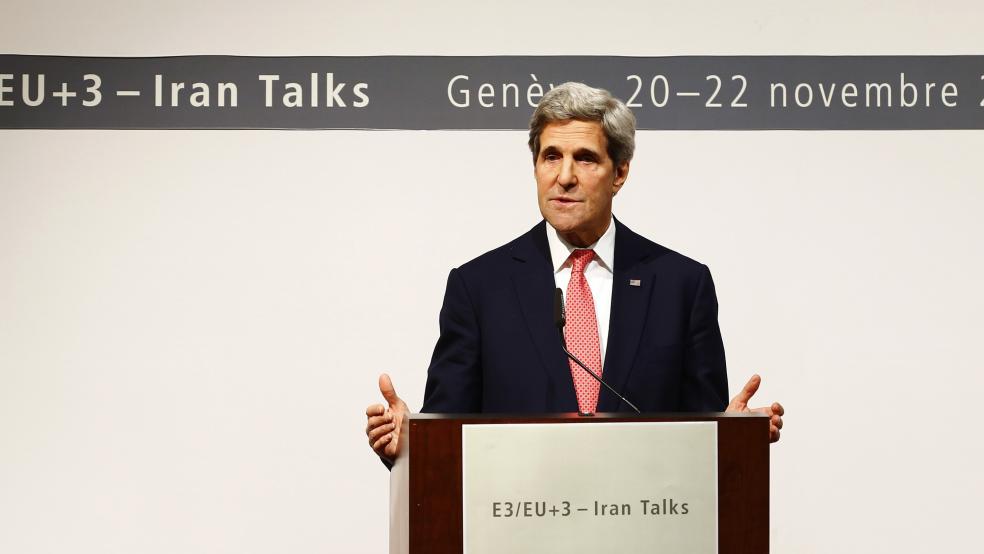OP-ED
Obama’s nuclear deal with Iran is a strategic disaster. In a single stroke, the US has shattered the European coalition it took a decade to assemble and made a multilateral US-Iran conflict bilateral again, greatly weakening America’s strategic position in the Middle East.
First, the details: the United States will ease certain trade sanctions and unfreeze foreign currency accounts held by Iran in exchange for Tehran’s halting or reversing its nuclear activities. The biggest issue: Iran is still allowed (it believes) to enrich uranium.
Related: Iranian Nuclear Deal Draws Fire from All Sides
This lets Tehran increase its technical nuclear expertise, the major impediment to creating a nuclear weapon. Nuclear programs are not complicated because the science is complex. They’re complicated because the delicate and highly technical skills needed to build and operate centrifuges are – well, delicate and highly technical.
Nuclear expertise is a function of a state’s human capital, which is why a country like Pakistan takes far longer to build a nuclear weapon than would a country like Germany. Germany isn’t in possession of secret nuclear blueprints. Rather, its technological mastery is such that Berlin simply wouldn’t have much difficulty spinning up enough weapons-grade uranium for a bomb. Allowing the mullahs to continue enriching uranium gives their scientists time to perfect the techniques needed for a quick breakout capability at any point in the future.
But it’s on the wider strategic aspects that this deal looks awful. The United States and Iran have been geopolitical enemies since the U.S. Embassy hostage crisis in 1979. Over the course of three-plus decades, the US has fought against malign Iranian influence in virtually every Middle Eastern battleground and several global ones. Washington doesn’t do so out of pique; rather, it does so for strategic reasons.
Related: Why Kerry’s Iran Deal Will Hold Up
The U.S. has virtually no national interests (with the possible exceptions of fighting drug addiction and relatively firm anti-earthquake policies) which are not opposed by Iran, usually violently. Support for democracy, survival of Israel, counterterrorism, peaceful development of the Gulf States, guaranteed free flow of oil, suppressing WMD proliferation…Iran hates them all.
Add its single-minded focus on ensuring that Syria -- the most repressive Arab regime left in the region -- stays on its throne, and you have a diplomatic win-set of zero.
Since 1979, however, this has been a conflict between the United States and Iran. Only. That was America’s handicap. No matter how great Tehran’s transgressions – murdering dissidents abroad, issuing malevolent fatwas, sponsoring international terrorism, attacking neutral oil freighters – Washington was left to complain about them on its own. Or alongside Israel, which didn’t impress the UN or the Europeans much; both countries had to fight tooth and nail to get effective multilateral sanctions placed on the Iranian regime.
This changed in 2002, when an Iranian dissident group revealed Tehran was secretly enriching uranium. Finally, Western Europe took notice. With French, British, and German backing the UN laid four rounds of increasingly stringent sanctions on Iran, and the EU-3 added some additional Western sanctions for good measure. The Bush administration thus turned the U.S.-Iran conflict multilateral, a major diplomatic achievement which vastly improved America’s position and leverage, and greatly limited Iran’s.
Related: Hardliners Hold Fire on Iran Nuclear Deal, but for How Long?
Though the sanctions were in place because of the nuclear program, they also raised the cost of Iran’s revisionist foreign policy overall. It was a two-fer. By drawing in our European allies, which had heretofore swallowed expat assassinations and the like with barely a whimper, Washington finally had help containing the worst rogue state in the Middle East. Since lifting sanctions required Western approval, Iran’s bad behavior became costly. Time was finally working for the U.S., guaranteed by our new-found coalition.
By releasing Tehran from its box too early, and before broader Iranian concessions, the Obama Administration shattered the unified diplomatic front that Bush had created. Iran has not abandoned its hostile foreign policy goals: it supported Hezbollah yesterday and will support it tomorrow. The U.S. will have to continue opposing those policies. But now it will be forced to do so without broad multilateral backing and without increasingly effective sanctions. Now time will be on Iran’s side, as the punishment for its policies drop and America’s costs rise.
Writ large, this deal illustrates the Obama administration’s utter lack of strategy in the Middle East. The U.S. has been trying to prevent Iran from becoming a regional hegemon for over three decades. Iran’s quest for a closed-cycle nuclear program is one of its troubling policies, but it is an extension of Iran’s overall challenge.
That’s why we worry about Iran’s nuclear program and not France’s – because Iran is an aggressive revisionist state with which the U.S. has zero mutual interests, while France has, well, cheese for instance. US foreign policy thus tries to contain Iran. It can do so at low cost, with a concert of European allies; or it can do so at high cost, alone. As it will.
Andrew Lewis Peek was a strategic advisor to the top U.S. and NATO commander in Afghanistan.
Top Reads from The Fiscal Times:





